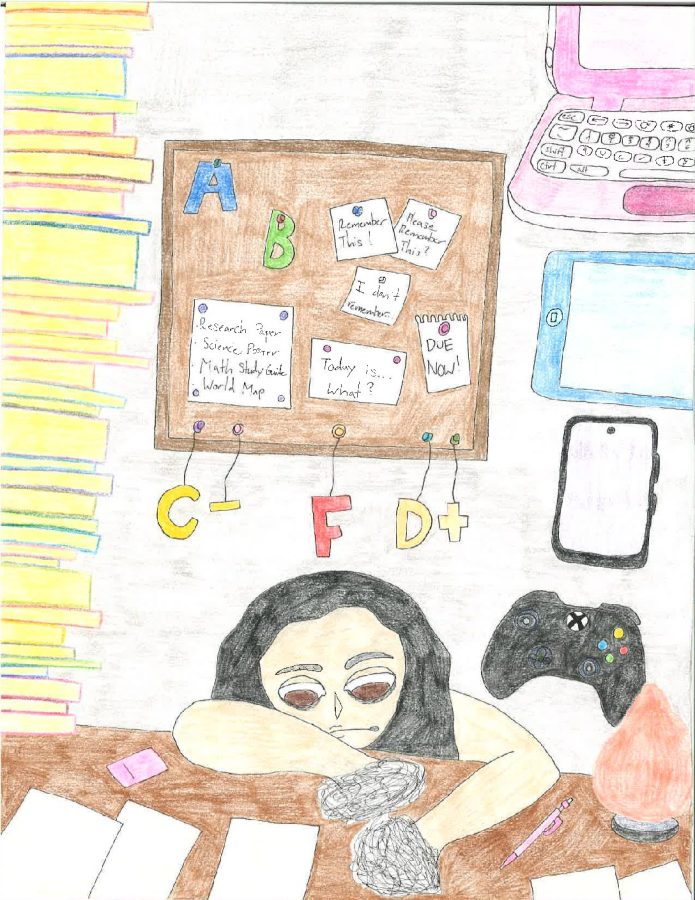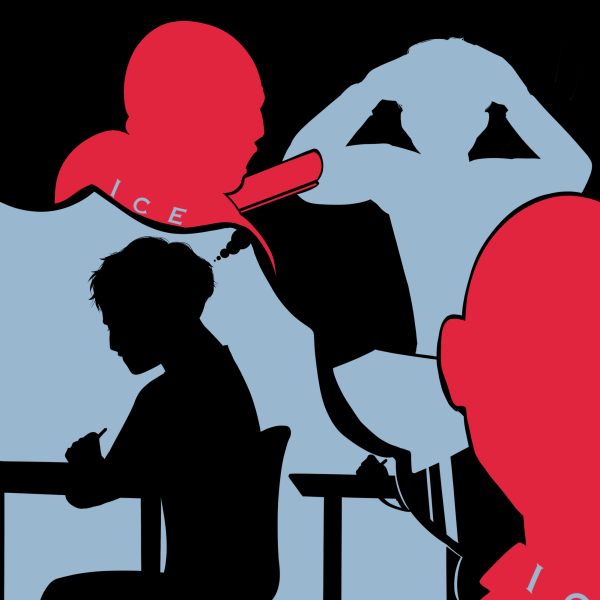Failing bears a burden on both students and teachers
Many students don’t do well in school. Is it their fault? Teachers? Are there any outside factors? Maybe the real answer will never be found.
Is failing a class completely your fault? Perhaps partially? The opinions of students, teachers, parents, and community members differ.
Some may state that yes, failing is your fault as a high school student, because at this age, you’re old enough to be able to make decisions by asking for help and getting assignments finished on time. Others say it is the teachers fault, because their duty by being an educator is to make sure no student fails and that they’re always on top of their assignments. Teachers are expected to provide help and answer questions for their students in order to prevent failure from even having a chance of occurring, whether or not their way of teaching is beneficial for the majority of the kids they teach.
“You have to look at the bigger picture,” said a teacher at Columbia Heights High School (CHHS), who has chosen remain anonymous. “It’s your responsibility as a teacher to make sure your students are being provided with the information that they need and the support that they require as well.
Even though this can be a very difficult, maybe even uncomfortable, question to attempt to answer, it’s important to be able to look at both sides.
“I’m not saying it’s never a student’s responsibility,” the CHHS teacher said. “Ideally, students should come to school ready to be an active learner and teachers should do what they can to remove barriers that make it difficult for students to be their best in the classroom.” .
There may be certain things that determine which responsibilities the student has to take on for themselves and which parts teachers should be the ones to step in for the people they are required to teach and help out. Statistics from “Are Teachers to Blame for Our Failing Education System?” claim that fewer than 15% of U.S high school student graduates have sufficient mathematics and science credentials to even begin to pursue an engineering degree. This puts education at a real standstill considering that the four core classes are the most essential for graduation. If some kids aren’t providing the effort needed in order to ensure that they have passing grades, who’s going to do that for them? Teachers attempt to use many tactics in order to make sure their kids are engaged, like playing Kahoot or Quizlet, or perhaps making them take notes. Do these tactics define a good teacher? Their efforts to reach out and help students? Their way of making sure students understand the information correctly?
Taking into account that there are plenty of different learning styles that work well for each individual student, does it mean it’ll work well every time? Here’s where the disagreements come into play because, while, yes, students should be allowed to learn whichever way is most helpful for them, it may not always end the way that they intended.
Entering high school is when students may begin to struggle for the first time. While a lot of students are too afraid to ask questions and ask for help, that doesn’t necessarily mean that they shouldn’t try to. The effort should be even on both sides of this, teachers are the ones in control of their students and the deadlines they set for assignments and if needed, should be doing check-ins in order to make sure the students they are teaching can understand everything to a decent extent.
“When a teacher has not done everything professionally possible/expected to produce learning is when it’s their fault,” said another CHHS teacher who asked to be anonymous. “If a teacher has done everything possible, then we need to focus on the student’s responsibility, problems, attitude and knowledge.”
It’s important to consider if most students who have failing grades in certain subjects are repeat offenders of this. Because it is something to take into consideration if a student does have a tendency to fail, then it may not be the teacher’s fault. It usually tends to depend on whether or not the student is putting in all of the effort they can or not.
“If over half the class is failing, then that’s when I know I’m failing as my duty to be a teacher,” said a third CHHS teacher. And that’s another reason to take into account whether the majority of a teacher’s class is passing or not.
In the end, all that matters is that both the teacher and the student are trying their best to reach out to the other and provide them with help or questions. The effort put forward into getting the grades you want and desire as a student is what matters the most. As for the teachers, it just all depends on whether or not the way they explain things is helpful to the majority of students, following up with answering concerns, and really showing that they care about their students and how well they’re doing.

Cat Pogreba is a senior at Columbia Heights High School, and it's their first year writing and editing for The Heights Herald. She enjoys writing poetry...







